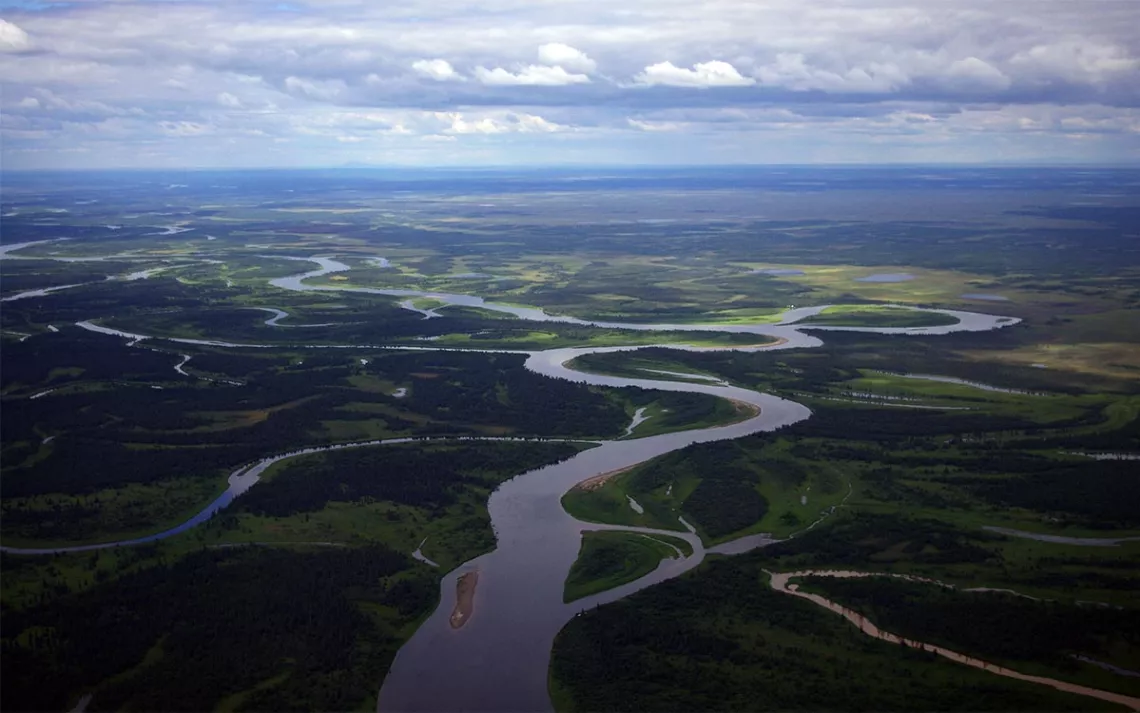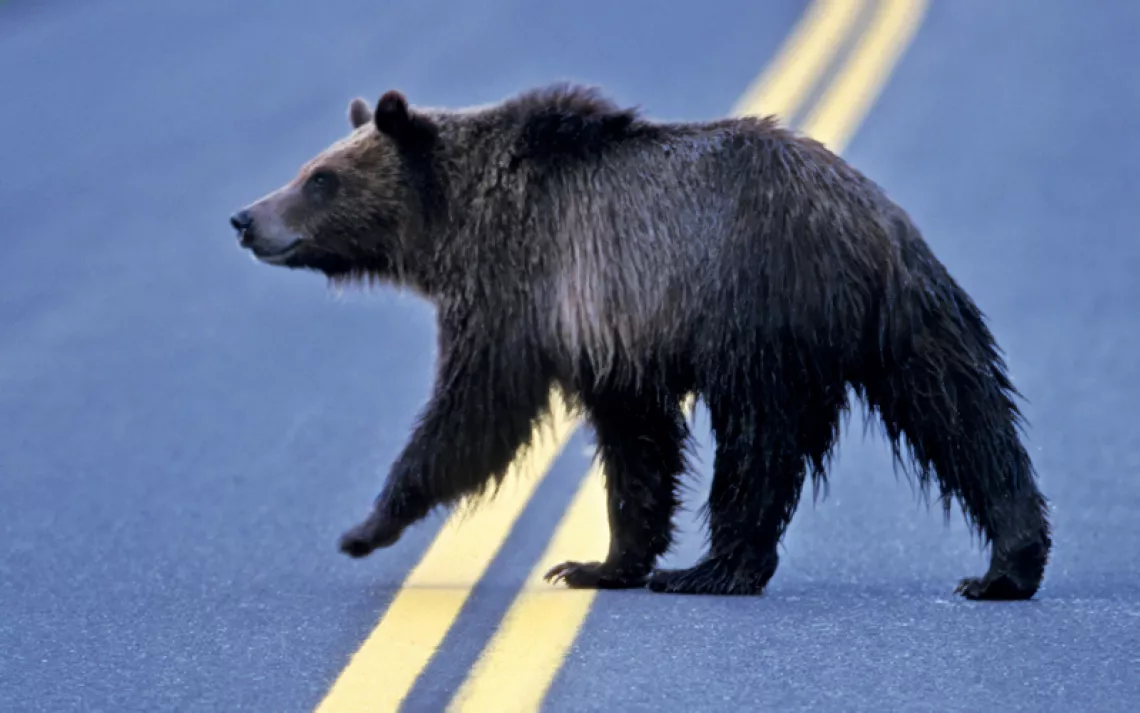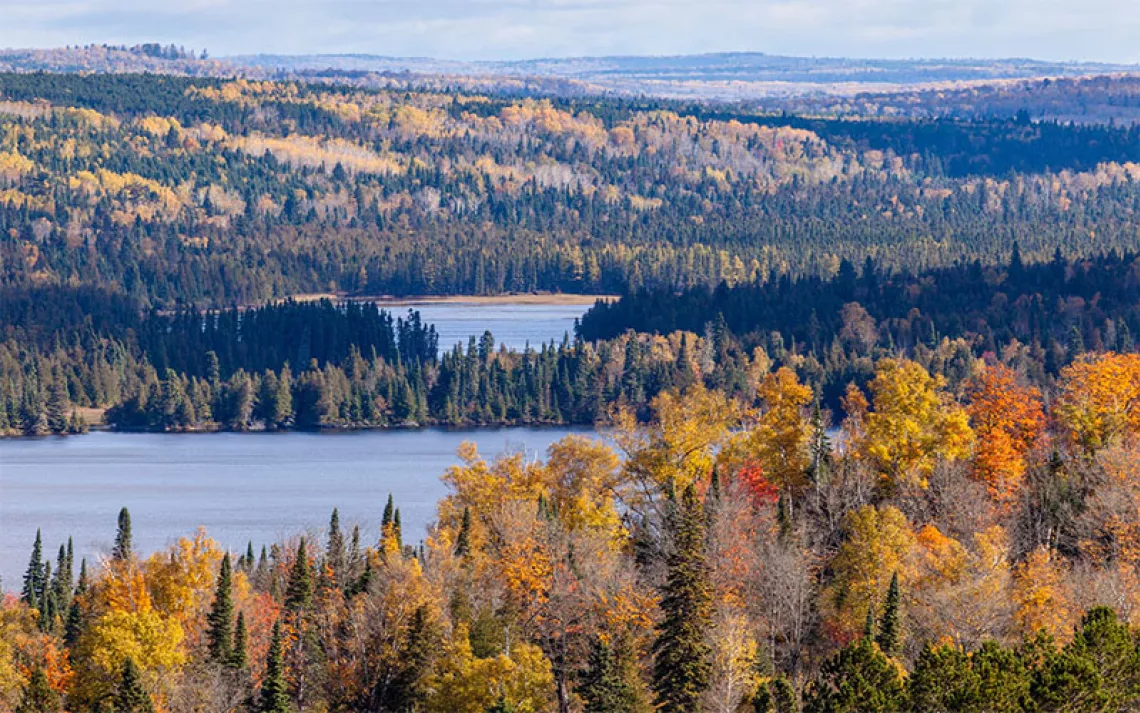Army Corps Forced to Extend Weak Comment Period for Pebble Mine
Proposed gold-and-copper mine threatens the world’s largest wild salmon fishery

Bristol Bay | Photo courtesy of United Tribes of Bristol Bay
Days before public hearings were set to take place on the controversial Pebble Mine proposed for Alaska, the Army Corps of Engineers was forced to extend its short 30-day public comment period for an environmental review of the potentially destructive gold-and-copper mine in the Bristol Bay region.
If the proposed Pebble Mine, a project of Canadian company Northern Dynasty Minerals, were allowed to proceed, it would site a massive open-pit mine near the largest remaining wild salmon fishery in the world. That fact alone was apparently not enough to compel the corps to grant more than just one month for Alaska communities to register their opinions ahead of an environmental review. The corps scheduled a series of eight (then later, after criticism, nine) public hearings at schools and community centers throughout April, the first of which took place April 9 at Naknek Elementary School in Bristol Bay, with the last originally scheduled for April 19 at the Dena'ina Center in Anchorage.
Now, after concerted pushback from local Alaska Natives and commercial and sport fishers, as well as Alaska governor Bill Walker, Alaska Department of Natural Resources commissioner Andy Mack, and Senator Lisa Murkowski—in addition to concerned people across the country—the army corps has added an additional 60 days of comment.
“A 30-day public comment period sends a message that their priority isn’t to engage in the most comprehensive and transparent process,” Lindsay Layland, the deputy director for United Tribes of Bristol Bay, said in an interview. “It’s not doing a service to any of the tribes here, especially given how many there are, and that’s the message they’ve sent: that it isn’t their priority to ensure that everyone is considered and included in this process.”
The United Tribes of Bristol Bay, a consortium representing 15 tribes in the region, is just one of several local stakeholders that have united to oppose the mine. Along with groups like Salmon State and Trout Unlimited, United Tribes is helping provide information to people prior to the army corps hearings, like the one that took place at Naknek Elementary. “Many residents didn’t even know the events were happening,” Layland said.
“It was pretty outrageous that they would only provide 30 days for a scoping comment period when this is one of the most controversial projects in the United States right now,” Verner Wilson, senior oceans campaigner for Friends of the Earth, said in an interview. “The Trump administration is clearly trying to fast-track this process.”
Bristol Bay is a freshwater haven with sprawling waterways latticed around six river basins, including a watershed that is home to hundreds of fish and animal species. Between 30 and 60 million salmon return there every year to spawn. The fishery is also an economic driver for Alaska, valued at nearly $1 billion annually and providing over 14,000 jobs.
Pebble Mine would create millions of tons of mining waste in the area with potentially catastrophic consequences should that waste leach into the waterways.
The army corps’s public comment process for Pebble Mine pales in comparison to the process that took place for Donlin Gold, another proposed mine in Alaska. The Donlin Mine, unlike Pebble, would not be located near Bristol Bay’s waters, and yet that public comment period lasted over three months and featured 16 total public hearings.
That’s why the United Tribes has made it a priority to ensure that people have the opportunity to stay engaged and updated so that they can participate in the public process. The consortium is sending out representatives to visit Bristol Bay communities, showing residents Pebble’s permit application and making sure people are aware of the potential impacts of the project.
At the Naknek hearing, about 40 people showed up, with 22 testifying in opposition to Pebble as they raised concerns about impacts the project would have on the region, on fisheries, and on wildlife, according to Layland.
The EPA held its own public comment period on the proposed mine, which is now closed. More than a million people sent comments to the EPA, the vast majority of them in opposition to the proposed gold-and-copper mine.
“What kind of world do we want future generations to live in?” said Wilson. “Do we want to be reliant on farmed salmon? We need places like Bristol Bay to be kept intact for wild salmon habitat.”
“Bristol Bay and the watershed has sustained the traditional way of life in the region for thousands of years because the people here rely on the salmon, the wildlife, the water fowl,” Layland said. “Everything that comes from this pristine landscape is absolutely critical to the culture and the tradition and the spirituality of the people of Bristol Bay. It encompasses an entire way of life.”
“If there’s one thing that the last decade has shown it's that the people of this region are extremely persistent,” she said. “The people of Bristol Bay are going to continue to oppose and fight this mine to protect their land.”
 The Magazine of The Sierra Club
The Magazine of The Sierra Club






